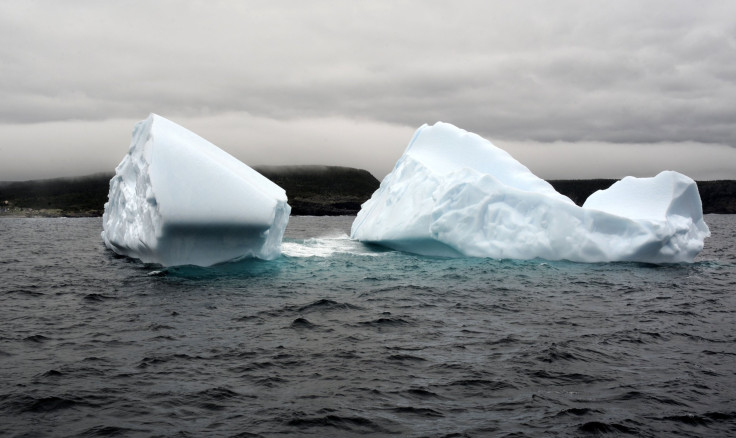Icebergs Are Blocking Shipping Vessels Crossing The Atlantic

Icebergs that set sail years ago are causing the shipping industry major issues, and a lot of money. There are currently more than 450 icebergs floating in the North Atlantic, an unprecedented amount for the early days of April, according to Popular Science.
During the last week of March the Coast Guard had tracked a mere 37 icebergs in the transatlantic shipping lanes used to transport good across the Atlantic, and as of April 3 there were 455, U.S. Coast Guard Commander Gabrielle McGrath told Popular Science.
Read: Sea Ice Levels In Arctic, Antarctic Hit Record Winter Lows, NASA Says
The North American Ice Service was formed after the sinking of the Titanic in 1912 and now puts out a chart each day to warns shippers where dangerous icebergs are, so that they can safely avoid them. The Ice Service is a collaboration between the Canadian Ice Service, International Ice Patrol and the U.S. National Ice Center.
Friday’s chart also had a note that read, “Significant expansion of iceberg limit due to predicted drift.”
The Service also keeps archives of icebergs of years past, which allowed them to say with confidence that this year’s significant increase in icebergs was unprecedented. Not only are there far more icebergs than usual, they appeared far more quickly than they usually do.
These icebergs calved, or broke off of, a glacier in Greenland years ago but the wind that year kept them close to short and kept them from breaking down too much. The weather the following year however set the icebergs free and into the ocean where they made their way across the Atlantic, according to Popular Science.
Then a storm in late March pushed the icebergs back out into the ocean and into the shipping lanes where they sit now threatening ships coming across. For now the shipping boats are taking a roundabout route to avoid them, spending more money on fuel and more time getting to their destination, according to McGrath.
They’ll eventually break down but it may take some time.
© Copyright IBTimes 2024. All rights reserved.





















